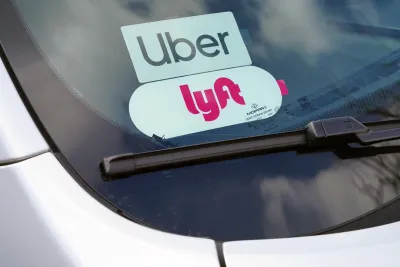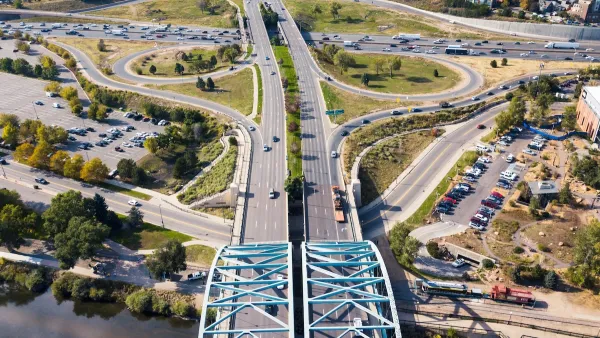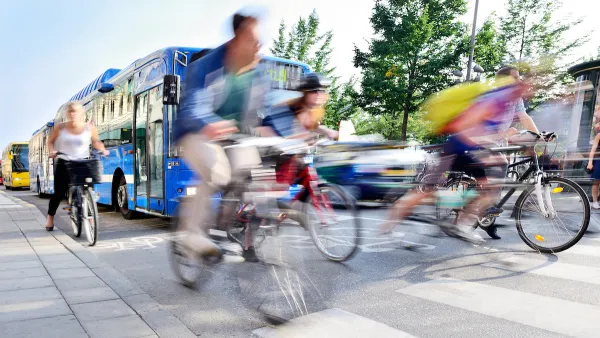A new study out of UC Davis details how ride-hailing services like Uber and Lyft impact more sustainable modes of transportation like transit, cycling, and walking from the perspective of user behavior.

A new study out of the University of California, Davis Institute of Transportation Studies found that more than half of ride-hailing trips taken by surveyed riders in California replaced more sustainable transportation options or created more vehicle miles. That means people who would have otherwise walked, cycled, carpooled, taken public transit, or not made the trip at all chose to hail an Uber, Lyft, or other similar service instead. “This suggests ride-hailing often tends to replace most sustainable transportation modes and leads to additional vehicle miles traveled,” according to an article on UC Davis’s website.
In the early days of ride-hailing services, there was a lot of hope that they would help reduce pollution and congestion, but that has since been disproven. Back in 2020, Planetizen shared articles from Verge and Bloomberg CityLab that discussed results of two studies that proved the opposite: Uber and Lyft generate 70 percent more pollution than trips they displace, and the time ride-hailing drivers spend looking for fares offsets any environmental benefits created by the industry. This new study from UC Davis, which was conducted to help guide development of California’s Clean Miles Standard, adds a new dimension to those findings: user behavior.
When not used sustainably, ride-hailing can “increase traffic, reduce the use of public transit — an economical and sustainable mode of transportation for a variety of income levels — and increase social inequities,” according to the UC Davis article. In addition to their findings, coauthors Giovanni Circella of the UC Davis Institute of Transportation Studies and Mischa Young of the Université de l’Ontario français in Canada make recommendations to improve the sustainability of ride-hailing trips, including ways to ensure those services complement public transit and other sustainable transportation modes rather than replace them.
FULL STORY: Half of Uber, Lyft Trips Replace More Sustainable Options

Analysis: Cybertruck Fatality Rate Far Exceeds That of Ford Pinto
The Tesla Cybertruck was recalled seven times last year.

National Parks Layoffs Will Cause Communities to Lose Billions
Thousands of essential park workers were laid off this week, just before the busy spring break season.

Retro-silient?: America’s First “Eco-burb,” The Woodlands Turns 50
A master-planned community north of Houston offers lessons on green infrastructure and resilient design, but falls short of its founder’s lofty affordability and walkability goals.

Test News Post 1
This is a summary

Analysis: Cybertruck Fatality Rate Far Exceeds That of Ford Pinto
The Tesla Cybertruck was recalled seven times last year.

Test News Headline 46
Test for the image on the front page.
Urban Design for Planners 1: Software Tools
This six-course series explores essential urban design concepts using open source software and equips planners with the tools they need to participate fully in the urban design process.
Planning for Universal Design
Learn the tools for implementing Universal Design in planning regulations.
EMC Planning Group, Inc.
Planetizen
Planetizen
Mpact (formerly Rail~Volution)
Great Falls Development Authority, Inc.
HUDs Office of Policy Development and Research
NYU Wagner Graduate School of Public Service




























